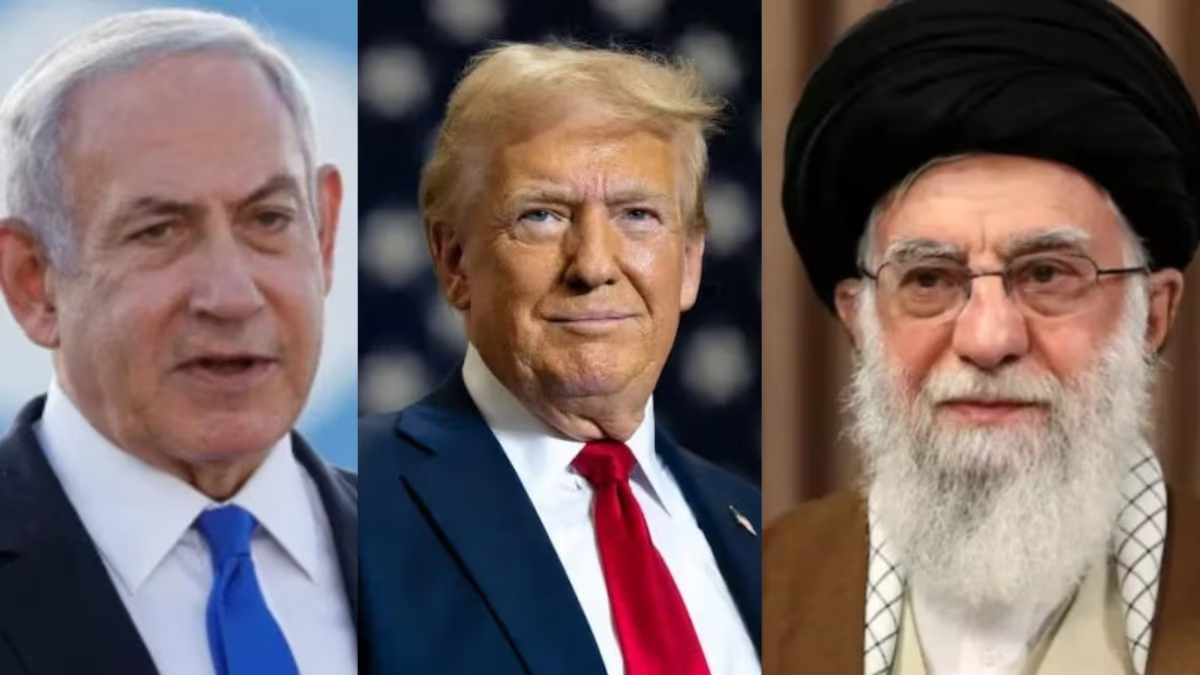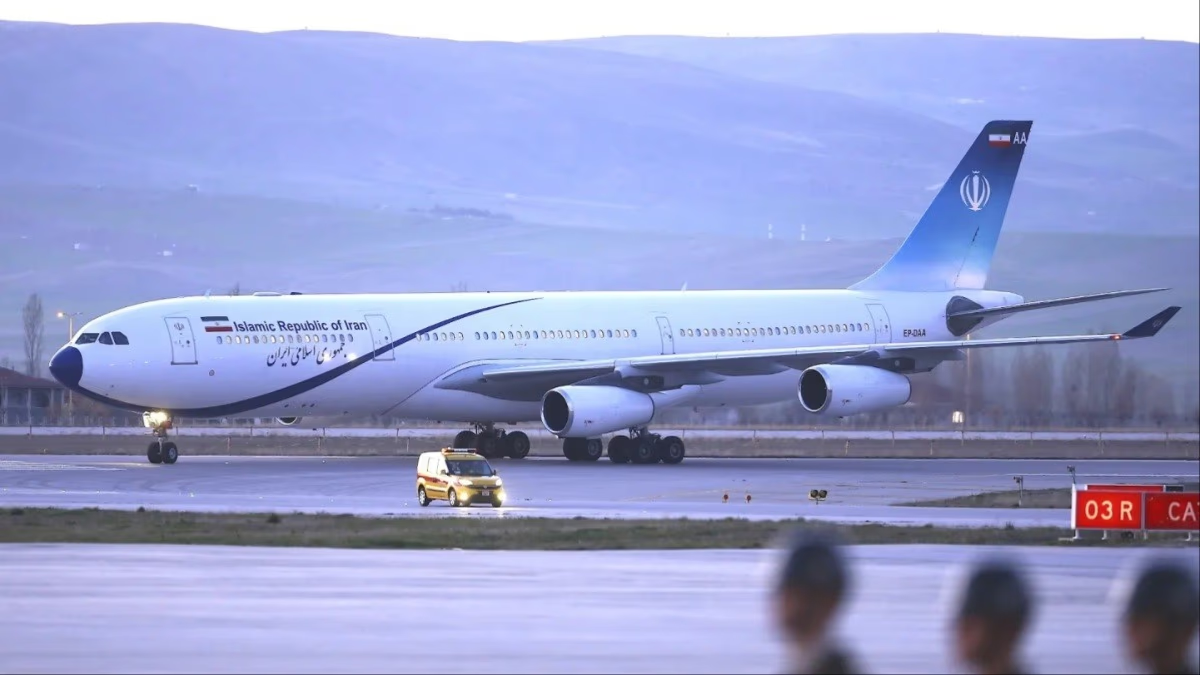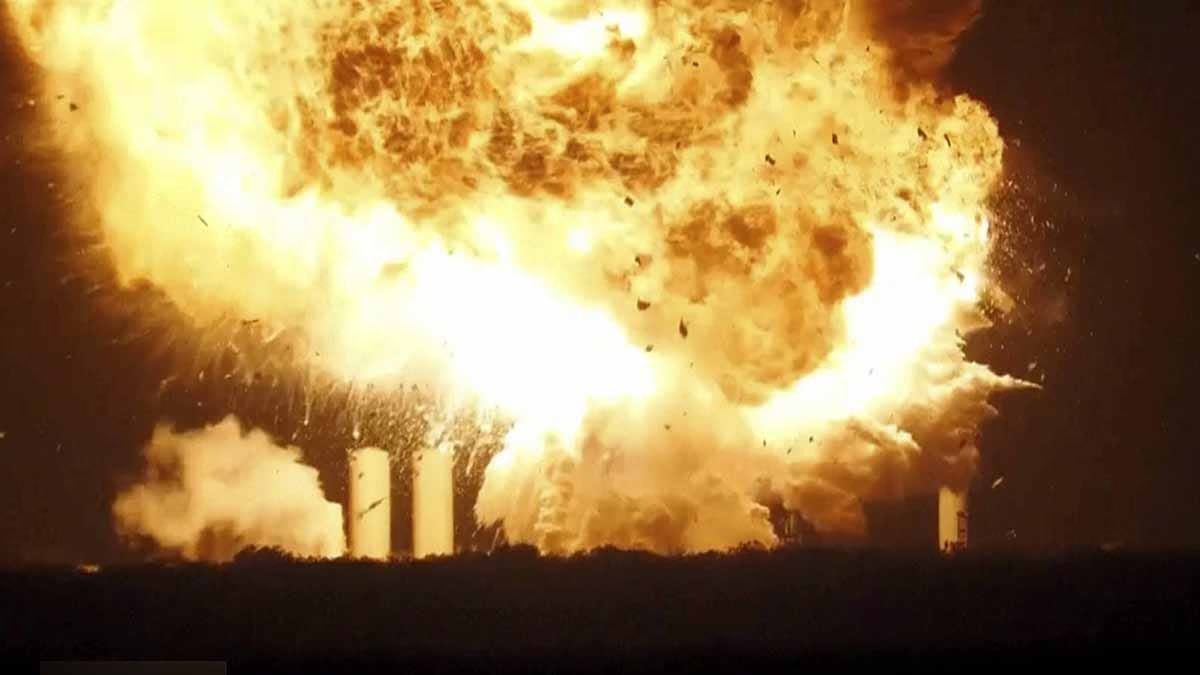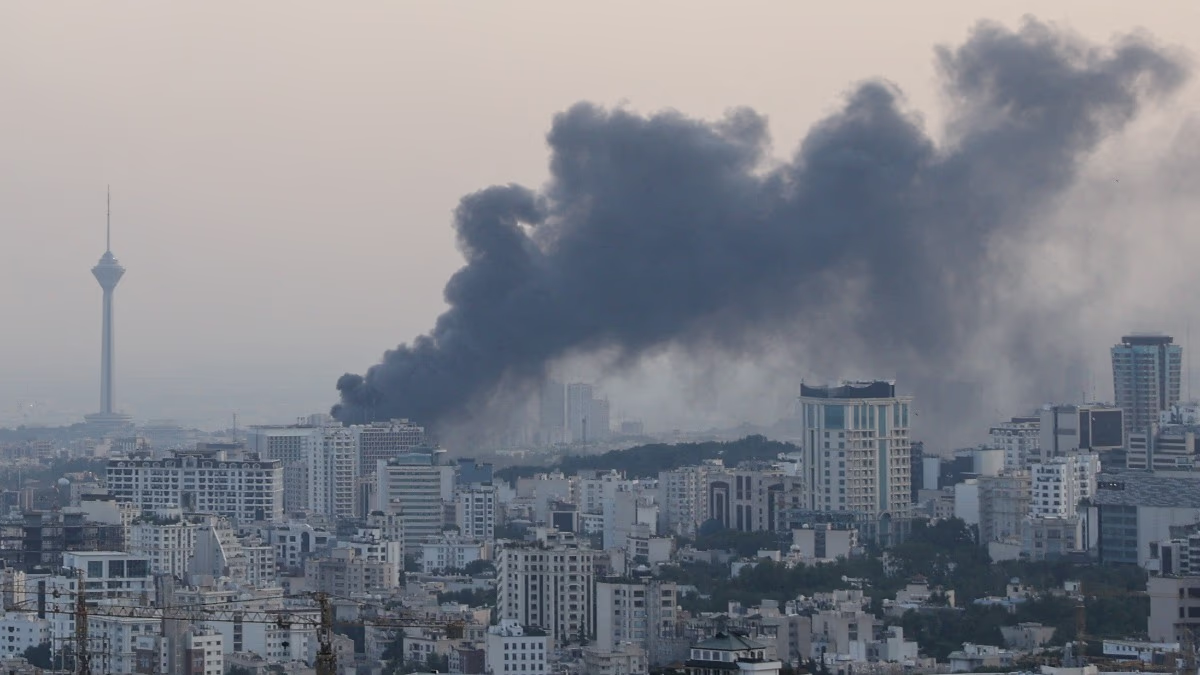The conflict between Israel and Iran has been raging for eight days. Israel is conducting airstrikes while Iran is launching missile attacks. The entire world is witnessing the imagery of war, pondering why the USA has abstained from intervening. A primary reason is the colossal cost—war is undeniably an expensive endeavor, and engaging would mean billions spent daily.
For the past two years, Israel has been fending off the Palestinian militant organization Hamas, and now it finds itself embroiled once more, this time with Iran. Experts suggest that enduring a prolonged conflict with Iran might not be feasible for Israel, given its substantial expenditures in the ongoing Palestinian conflict.
In its conflict with Iran, Israel is reportedly spending nearly 630 million dollars daily, amounting to approximately 5 billion dollars over the past eight days.
In just the first two days of the war, Israel had already spent about 1.2 billion dollars. Expenditures primarily cover airstrikes, missile attacks, and ammunition, in addition to hefty costs incurred by missile-interception air defense systems.
The financial burden from the Palestinian conflict has already weighed heavily on Israel, and this has only intensified with the Iran war.
The Israeli Ministry of Finance has revealed that the country's economic growth, initially projected at 4.6% for 2025, has been revised down to 3.6%. War has stymied factory output and productivity, halting economic advancement. Seven percent of Israel's GDP is allocated to defense spending, ranking second only to Ukraine, affecting the national budget.
If the Iran-Israel conflict escalates to nuclear catastrophe levels, other nations might seize the opportunity.
China and Russia, aligned with Iran, could confront the USA. The US and European nations might launch missile attacks on Iran, China, and Russia, who could retaliate in kind.
Iran might initiate more substantial assaults on Israel, supported by Israel's historic adversaries. A coordinated offensive from Iran, Lebanon, Syria, and Egypt could unfold. Egyptian and Lebanese ground forces might target Israeli nuclear facilities.
Iran and Lebanon could continue missile strikes on Tel Aviv. Caught up in its own battles, the US might be unable to engage, leaving Israel isolated.
Should this world war ignite, battles might concurrently erupt between Japan and North Korea. North Korea might invade Japan, launching attacks on ports and military bases. Japan would predictably respond.
Hostilities could also flare between North and South Korea, with North Korean missiles raining down on Seoul, aiming to gradually seize control over South Korea. Recently, North Korea launched 10 rockets at South Korea.
A war over Taiwan might ensue, with China launching missile attacks to annex the region. America, distracted, might be unable to intervene in time. China's warships in the South China Sea could encircle Taiwan.
Conflict could also erupt between India and Pakistan. World war sparks might provoke Pakistan to attack over Kashmir, initiating missile strikes. In retaliation, India could target major Pakistani cities like Karachi and Islamabad, aiming to reclaim POK. Such nuclear plant assaults could lead to widespread war with multiple fronts, potentially ushering in a third World War.
Ultimately, a world war hinges on the USA's involvement. As a significant force in global economy and military might, America's role is pivotal. Yet, questions linger—why isn't Donald Trump directly engaging in the war? Friday morning headlines hinted at Trump's decision within two weeks regarding involvement.
Trump left the G7 summit abruptly for Washington, hinting at monumental actions ahead—speculation swirled about a possible Iran-Israel ceasefire. Yet Trump dismissed such a prospect, urging people to leave Tehran. This heightened anticipation of US involvement that so far remains unfulfilled. Has Trump truly changed his plan for two weeks? The world considers the possibility of entanglement for Trump and America.
The US won't step into the fray for mere airstrikes. If America intervenes, full nuclear disarmament for Iran would be the target. This entails America physically engaging within Iran rather than assuming mere missile strikes on nuclear plants will suffice.
Thus, Donald Trump is opting for diplomacy over direct confrontation. With hopeful anticipation, Trump seeks Iran's return to the negotiating table post-Israel's relentless assaults, reinforced by Trump's go-ahead for continued Israeli strikes.
Trump understands that entering warfare means a point of no return for America.
Iran isn't a minor entity. With a population of 90 million, Iran is comparable to key European powerhouses—France, Germany, Poland, and Spain. Ranking 16th globally, Iran's military strength is formidable, boasting over 900,000 troops.
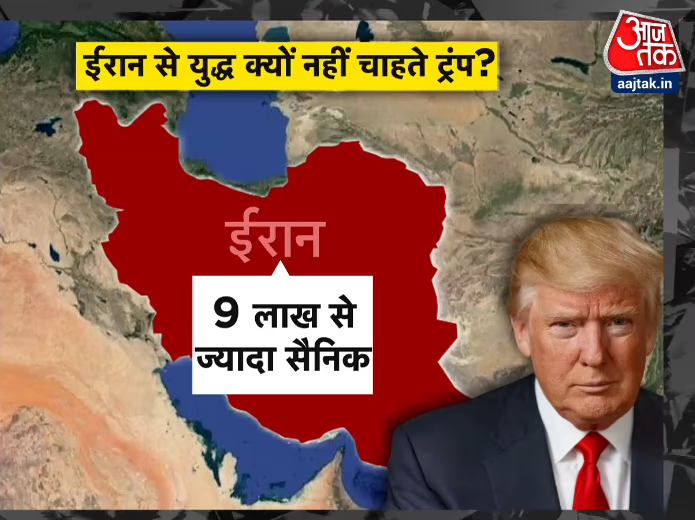
Source: aajtak
Victorious overtakes of Iran remain elusive even for the US, motivating Trump to prefer negotiation over confrontation.
America is offering Iran an opportunity, hoping Iran endorses both US deals and oversight. The deal is for Iran to abandon its nuclear aspirations, with diplomacy as the conduit.
In light of this, foreign ministers from three major European countries are meeting Iran's foreign minister. The Geneva meeting in Switzerland involves the foreign ministers of Britain, Germany, and France, alongside Iran, convened to provide Iran an opportunity to surrender its nuclear agenda.

Source: aajtak
High expectations from this meeting are absent, as Iran continues sending messages to the US that withdrawal isn't an option. Iran remains resolute against Israeli strikes, vowing to battle with even greater might.
Nonetheless, these two weeks afford America ample deliberation time—whether to enter the war. Consequently, US preparations have commenced.
The USA has begun deploying weapons to Middle East bases. At least ten C-17 military transport aircraft have transferred weapon systems from Europe to Middle East bases.
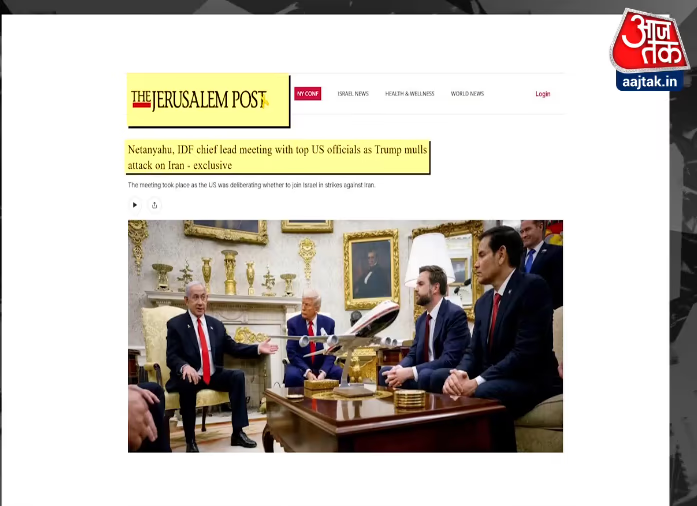
Source: aajtak
Reports indicate growing Israeli unease regarding America's delay. Israeli newspaper The Jerusalem Post disclosed Netanyahu's meeting with the US Vice President and Defense Minister—details on location and execution remain undisclosed. The report suggests Netanyahu's concerns about America's potential abandon or underestimation of Iran's might. While Israel remains resilient, concern is evident as Iran relentlessly intensifies its attacks. Nevertheless, Israel claims air supremacy over Iranian skies.
Can Israel Devastate the Fordow Nuclear Plant?
Located in Iran, the Fordow Nuclear Plant faces destruction threats from Israel and the US. Yet, such endeavors aren't as simple as they appear. Despite assertions of planned devastation, executing this would be challenging for Israel and the US, considering the potential for nuclear plant leakage, reminiscent of Ukraine's Chernobyl disaster.
Thus far, Israeli strikes target Iranian nuclear facilities, marking a perilous aspect of this war.
The International Atomic Energy Agency (IAEA), vigilant over nuclear operations and regulation, voiced concerns over these attacks. IAEA Director General Rafael Grossi highlighted risks of radioactive leakage potentially imperiling civilian lives. IAEA's information lists twelve nuclear sites in Iran.
Included are nuclear research facilities in Bonab, Tehran, and Arak. Fordow and Natanz function as uranium enrichment plants, extracting a vital element, Uranium-235 isotope, integral to nuclear weaponry.
Uranium mines in Saghand and Bandar Abbas provide Iran with natural uranium, processed in enrichment plants to extract Uranium 235 for nuclear armament.
Bushehr hosts a nuclear power plant where nuclear energy is harnessed for electricity. Isfahan houses a uranium conversion plant purifying uranium.
Additionally, Iran's nuclear facilities in Mariwan, Lavizan, and Varamin remain undisclosed to IAEA.
Fordow's geographical positioning amidst mountains and 300 feet underground has spared it from major Israeli attacks. Destruction demands substantial bunker-buster bombs. Should America deploy its potent bunker-buster bomb here, leakage could threaten devastating consequences.
Any assault spells nuclear catastrophe, potentially inciting allied nations to react against Israel and the USA. Such scenarios are avoidant for America, hence the absence of nuclear site attacks. Determined, Netanyahu seems unyielding on Iran's nuclear annihilation.
